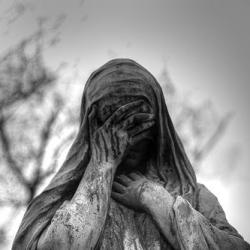Now Featured in the Patheos Book Club
Troubled Minds
Mental Illness and the Church's Mission
By Amy Simpson
Amy Simpson calls the church to a renewed commitment to people who suffer from mental illness and to the families that suffer with them. Drawing on her own family's history of mental illness, Simpson provides a bracing look at the social and physical realities of mental illness and explores new possibilities for ministry to this stigmatized group.
Talking Points:
- Mental illness is the number-one cause of disability in North America.
- According to the National Institute of Mental Health and other experts, about one in four adults—a little more than 25 percent of Americans ages eighteen and older—suffer from a diagnosable mental disorder in a given year.
- Almost 12 million people in the United States have a serious or chronic mental illness such as major depression, schizophrenia and bipolar disorder.
- Antipsychotics are the top-selling class of drugs in the US.
- According to the US Surgeon General, every year an estimated 20 percent of children in the US are at least mildly impaired by some type of diagnosable mental illness.
In 2010, Simpson conducted a survey among readers of Leadership Journal and other Christianity Today publications for church leaders and asked them about their experiences with mental illness among members of their congregations, in their families and personally.
Among five hundred responses, 98 percent had seen some type of mental illness in their congregations. Findings included:
- Eighty-four percent of church leaders were aware of some type of anxiety disorder within their congregations.
- Ninety-one percent of church leaders had seen mood disorders such as depression within their churches.
- More than thirty-eight percent of church leaders indicated they had suffered from a mood disorder such as depression or bipolar disorder.
- Twenty-three percent indicated they had suffered from an anxiety disorder, such as generalized anxiety disorder, post-traumatic stress disorder, obsessive-compulsive disorder, panic disorder or social anxiety disorder.
- More than ten percent indicated they had a family member who had suffered from a psychotic disorder such as schizophrenia.
5/1/2013 4:00:00 AM




